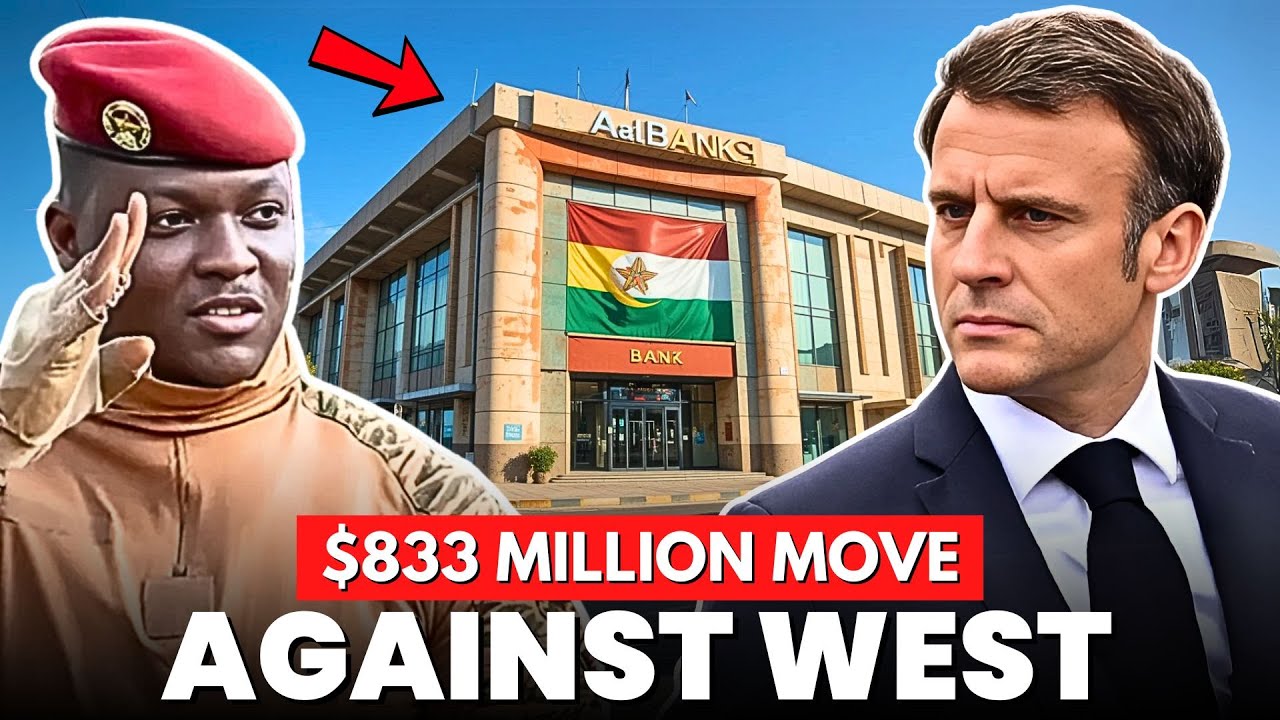**Burkina Faso’s Gold Revival: A Strategic Rebirth Amid Chaos**
 In a stunning turn of events, Burkina Faso has emerged from the ashes of conflict and corporate retreat to announce a remarkable 4% surge in gold production for 2025, raising the total output to 55.7 metric tons. Once abandoned by foreign miners amidst chaos, the nation is now poised to reclaim its status on the global gold map, transforming its crumbling industry into a comeback story that defies expectations.
In a stunning turn of events, Burkina Faso has emerged from the ashes of conflict and corporate retreat to announce a remarkable 4% surge in gold production for 2025, raising the total output to 55.7 metric tons. Once abandoned by foreign miners amidst chaos, the nation is now poised to reclaim its status on the global gold map, transforming its crumbling industry into a comeback story that defies expectations.
The dusty remnants of deserted mining sites are now alive with renewed activity as the government, under the leadership of Captain Ibrahim Traoreore, strategically reactivates dormant mines. The Yuga mine, long thought to be a relic of the past, has resumed operations, while Kiaka prepares to break ground. This revival isn’t just about numbers; it’s a bold declaration of independence, signaling that Burkina Faso is ready to reclaim its resources from the shadows of imperialism and neo-colonialism.
As the world watches, Burkina Faso’s strategy hinges not on risky new explorations but on a calculated reactivation of existing resources. The government has successfully rewritten its mining code, ensuring that it gains a substantial stake in its mineral wealth. This overhaul means that foreign companies must now recognize Burkina Faso as a legitimate stakeholder, with stricter transparency mandates and revenue-sharing requirements. The days of foreign firms extracting profits without accountability are over; the nation is taking back control.
What’s more, as Western mining companies pack their bags, Burkina Faso is pivoting towards new partnerships, notably with Russia. The recent license awarded to Nord Gold, a major Russian player, marks a significant shift in the country’s approach to foreign investment. This strategic realignment not only promises immediate financial influx—an estimated $89 million into the national budget—but also reinforces Burkina Faso’s economic sovereignty in a region rife with instability.
However, this is not merely a story of economic revival; it is a geopolitical chess game. As Burkina Faso fortifies its economic independence, it faces the challenge of ensuring that its newfound wealth benefits the Burkinabe people. The government is channeling mining profits into national security, infrastructure development, and even exploring the possibility of gold-backed currencies to insulate itself from the whims of global financial markets.
The narrative of Burkina Faso is evolving from one of victimhood to empowerment. The government’s focus on creating a mining economy that prioritizes local needs over foreign profits is a radical departure from the past, and it is a message to the world: Burkina Faso is no longer a passive player in the resource game; it is a determined contender.
As the drills roar back to life in the Yuga and Kiaka mines, the stakes are high. The question remains—will this newfound wealth translate into genuine power for the Burkinabe people, or will it merely shift the dynamics of exploitation? With the potential for regional cooperation and the reimagining of economic frameworks, Burkina Faso stands at a crossroads, ready to redefine its narrative.
As we witness this transformation, one thing is clear: Burkina Faso is not just mining gold; it is mining its future. The world is watching closely as this once-forgotten nation rewrites the rules of the game, turning its rich resources into a powerful tool for resilience and sovereignty. Will other nations follow suit in reclaiming their narratives, or will Burkina Faso remain an outlier in this new era of resource nationalism? The answers may shape the future of an entire continent.




